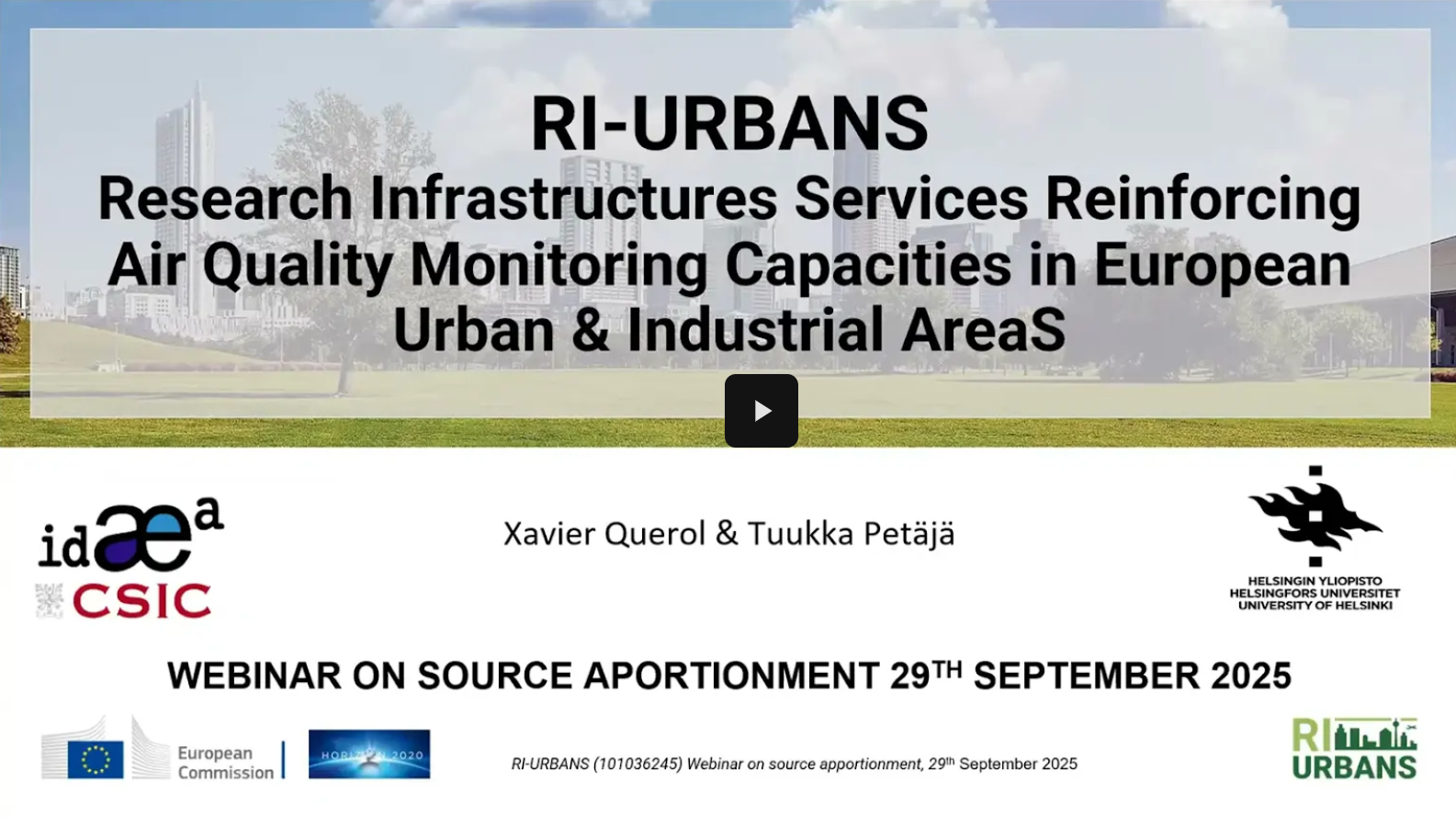Advancing Urban Air Quality Research through RI-URBANS
Published: 2, October, 2025

On 29 September 2025, the RI-URBANS project hosted its final webinar on Source Apportionment, drawing the attention of more than 200 participants from across Europe and beyond. The event showcased innovative tools and strategies to identify and quantify pollution sources in urban environments — a crucial step toward improving air quality and protecting public health.
ACTRIS plays a central role in RI-URBANS, providing expertise, data, and infrastructure that enable the development of harmonised methodologies for air pollution monitoring. The knowledge generated within RI-URBANS directly builds on the long-standing experience of ACTRIS in atmospheric observations, ensuring that advanced scientific approaches can be transferred into operational applications for urban areas.
During the webinar, leading experts presented diverse methodologies for source apportionment and demonstrated how these tools can be applied to better understand pollution sources. The session concluded with an interactive Q&A, offering participants the opportunity to engage directly with the experts.
“ACTRIS’s contribution to RI-URBANS highlights the importance of pan-European research infrastructures in addressing pressing societal challenges such as urban air quality. By combining advanced observational capacities with collaborative projects, ACTRIS helps bridge the gap between research and solutions that benefit citizens.”
The webinar recording is now publicly available on the RI-URBANS website: https://lnkd.in/dH62CBtz
About RI-URBANS
RI-URBANS (Research Infrastructures Services Reinforcing Air Quality Monitoring Capacities in European Urban & Industrial Areas) is a Horizon 2020 project that brings together European research infrastructures, including ACTRIS, to develop innovative approaches for urban air quality assessment and management. The project fosters collaboration between science, policy, and stakeholders to ensure healthier and more sustainable urban environments.